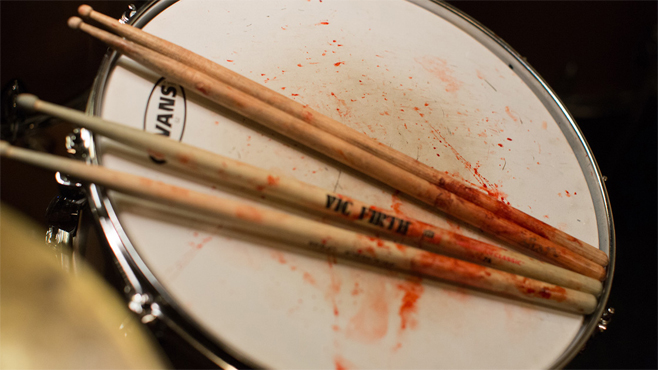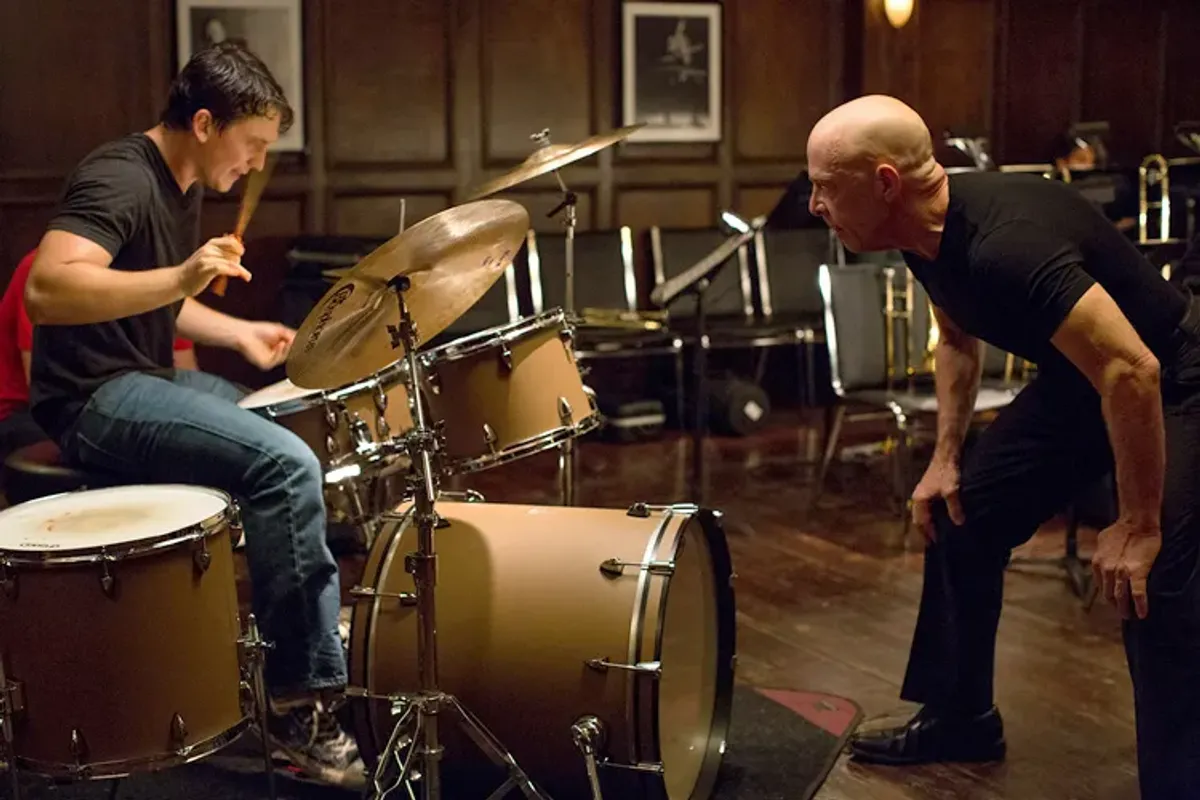The Book of Lieh Tzŭ has a parable called “The Foolish Old Man Who Moved The Mountains”. A nonagenarian begins hauling away the mighty T’ai-hsing and Wang-wu mountains, one bucket of rocks at a time. A bystander laughs at this futile task, but the Foolish Old Man Chides him. It’s not futile. His children will continue digging when he’s gone, and so will their children. God hears the Foolish Man’s words, and is moved by his faith. He sends two angels to carry the mountains away on their backs.
It’s symbolic and isn’t meant as a psychological portrait, but I wonder what the Foolish Old Man’s children thought of the idea. Shackled to the dream of an old man; knowing that even after their father has died, they’ll still be be there, slaving at the mountainface, watching it subside with torturous slowness, before they die in turn and their children continued their fate.
And what would they do when they finished? Hundreds of years from now, will their descendents lift the last flake of rhyolite, granite, or chert from a flat plain…and go utterly mad with realization? Understand at once, with the force of a crashing wave, that this was for nothing? “The man we did this for is dead. He died long ago. He knew he’d never live to see his task fulfilled. It was never about the mountains. It was about making us suffer.”
Whiplash is an intense and terrifying film a young jazz drummer and his abusive bandleader. The kid tries to rationalize their relationship as something more than it is. A stepping stone on the road to greatness. A struggle to overcome. In the end, though, there’s no point except pain.
Technically, Whiplash is phenomenal, with fantastic filming, acting, and editing. Shots are almost blood-freezing in their brilliance—JK Simmons raises a hand to deliver a count-in, and the camera orbits it in a slow arc, allowing that raised hand to become the center of the universe. The presence of “Caravan” on the score inspired me to dig out my old Duke Ellington charts and re-learn part of it on bass.
But in the end, Whiplash’s technical merits recede from memory, leaving a raw, stark, and sad story about a kid trapped by the prison bars of a drumset, unable to leave.
Andrew Neiman is a young drummer at the fictional Schaffer Academy. He’s hand-picked to join the band of Terence Fletcher: a band leader who has the rep of demanding perfection from his students. Neiman sees this as a way to fast-track his career, and earn the respect of his parents. But Fletcher turns out to be a cruel, sadistic monster. He intersperses tirades and bullying with insincere little pep talks (“Listen, the key is to just relax. You’re here for a reason!”). He pushes kids to the breaking point, and then doles out just enough fatherly kindness to stop them from quitting.
Neiman is a naive, tragic figure. He’s wandered into the jaws of a monstrous, oblique game, against a man who is very good at playing it. Throughout the film, he resists the realization that Fletcher’s an enemy, not a mentor. Even at the end (when he’s won a victory of sorts), we sense he might get sucked back in by Fletcher’s glib charm. I found this believable. Only sinners and fools go to hell, so Neiman has to believe he’s secretly in heaven.
I’ve heard Whiplash described as a study of futility, like Werner Herzog’s “Conquest of the Useless“. But in this case, it’s worse than there simply being no point. Fletcher has a clear goal: to make Neiman and others cry and feel helpless and maybe commit suicide. Some people enjoy taking all the pains of the world, and other people enjoy giving them.
Fletcher’s excuses for his behavior—he’s pushing kids to achieve greatness, like how Jo Jones made Charlie Parker great!—is so thin you could use it to paper the head of Neiman’s snare drum. He has no actual interest in music or art. On at least one (and maybe two?) occasions, we see him knowingly sabotage a performance in front of a live audience to embarrass a musician. He likes hurting kids. That seems to be his thing.
Oddly, that’s how the movie works, too. Writer-director Damien Chazelle wrote the film based on a negative experience he had in a high school jazz band. But Whiplash isn’t really about collegiate jazz, or even music. Adam Neely, in a review of the film, observes that it’s actually a sports movie. Every plot point and character arc (Fletcher as the gruff coach, Neiman as the talented rookie, the competition at Lincoln Center as “the big game”) would make more sense for, say, NCAA Football. It features stylistic tropes that don’t really make sense. Like having extra musicians sitting around, turning the pages, hoping they’ll get a turn to play. This is because the movie needs an analog for “being on the bench”.
But there’s also a weird king of logic to it. Once Neiman is in Fletcher’s kingdom, the world starts to change. The rules become blurry. Is he playing too fast or too slow? Is he counting 215 beats per minute? He doesn’t know. Too late, he realizes it doesn’t matter at all what he’s doing wrong: Fletcher is hazing him. The rules are weird, arbitrary, and completely divorced from any sort of ground truth.
But reality has a way of coming back to you. We see Fletcher near the end of the film, and he’s reduced to a diminished, pathetic shadow of himself. We see him tinkling some lame cod-jazz on a piano at a shitty West End bar, and he finally stands revealed as what he is: a talentless hack, pushing students to achieve something he could never do himself.
He talks to Neiman (this time, as equals, not as master and student), and defends his teaching methods as a necessary evil. Students need tough love, because otherwise we get more “Starbucks jazz” albums. Which is bitterly ironic: the music we just heard him play was the epitome of “Starbucks jazz”. Fletcher, in a way, is running from his own shadow. Neiman is haunted by the idea that he might be a failure waiting to happen. For Fletcher, it’s worse. There’s no “waiting to happen” for him, he knows he’s a failure. This isn’t to say we ever feel sympathy for Fletcher. But his character does gain a certain depth.
JK Simmons plays Fletcher really hard. Too hard? It’s hard to believe that a teacher at a prestigious college would fling metal chairs at students’ faces, call them faggots, call a Jewish student a “hymie”, etc, etc.
Is the Schaffer Academy is publically funded? Asking a female student if she got her chair because she’s cute sounds like a great way to get the school buttfucked by a hundred-thousand-dollar Title XI decision. Nobody could afford to hire Terence Fletcher in real life, no matter how talented he is. He would bankrupt any school he worked for.
(My own band leader teaches high school. I asked him what the current climate is, regarding teachers touching students. His response was “Are you kidding me? We’re not even allowed to pat our students’ bodies on the back to say ‘well done'”.)
But the story is tightly constructed, and has a tendency to coil back on itself in interesting ways. The legendary “rushing or dragging” scene, where Neiman has to decide whether he was too slow or too fast (with Fletcher slapping him in the face), and finally admits he was rushing. This lines up with metronomic precision with a later scene, where Neiman rushes, and pays dearly for it.
Yet the world of the film has a slight gauzy unreality to it, as if it’s stuck halfway in the birth canal of Chazelle’s imagination. Characters don’t always behave how real people would behave. But it points to something true. Of the many lies told to children, one of the worst is “It’s for your own good”. No, often it’s for their own good. Many parents pressure their children to become a lawyer—a miserable career path, with some of the lowest rates of reported happiness of any profession. Why? Well, having a child as a lawyer makes them look like successes as parents. It has nothing to do with the child’s happiness at all, only their own. Neiman is caught in this parental trap. He grasps a dream, finds it has sharp edges, and keeps gripping until his hands come to pieces.

No Comments »
Comments are moderated and may take up to 24 hours to appear.
No comments yet.

